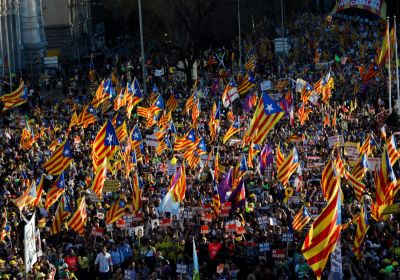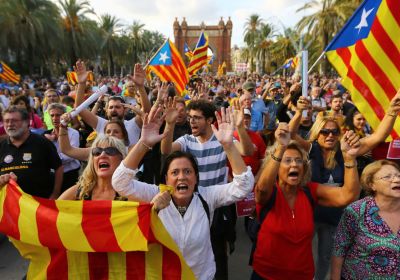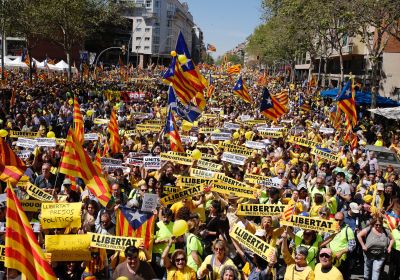
The electoral defeat of the right in Spain on April 28 is a cause for celebration for all progressive people, writes Dick Nichols.

The electoral defeat of the right in Spain on April 28 is a cause for celebration for all progressive people, writes Dick Nichols.

Spain’s April 28 general election will be “existential” for the Spanish state, according to outgoing Spanish Socialist Workers Party (PSOE) foreign minister Josep Borrell — the scourge of the Catalan sovereignty movement. It will be a “referendum on the secessionist menace”, according to People’s Party (PP) opposition leader Pablo Casado.

Despite being prime minister in a minority government, Pedro Sánchez said that his government would run its full term. Why did he change his mind and call early elections?

News and analysis on Catalonia's struggle for self-determination from Green Left Weekly's European bureau.

At the June 8 ceremonial handing over of portfolio briefcases from outgoing conservative People’s Party (PP) ministers to their incoming Spanish Socialist Workers’ Party (PSOE) replacements, the contrasts were dramatic.
A bunch of reactionary lifetime political operators and religious obscurantists were replaced by what new Prime Minister Pedro Sánchez boasted was the “progressive”, “feminist” and “Europeanist” alternative.

The Catalan parliament finally voted in a new president on May 14, 199 days after the pro-independence bloc held on to its majority at the December 21 elections imposed by the Spanish government.